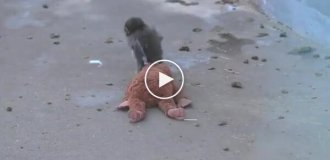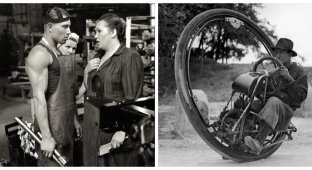Unforgivable Mistakes of Heroes: 8 of the Stupidest Decisions in Science Fiction History (9 photos)
From crazy experiments with giant creatures to sudden romance in the middle of the apocalypse, the stupid character decisions in science fiction often betray a script that's been rushed for simple blockbuster thrills. It's all about spectacle, not meaning.
But fans of the genre have long since outgrown this. We deserve intelligent stories that don't sacrifice logic for special effects. 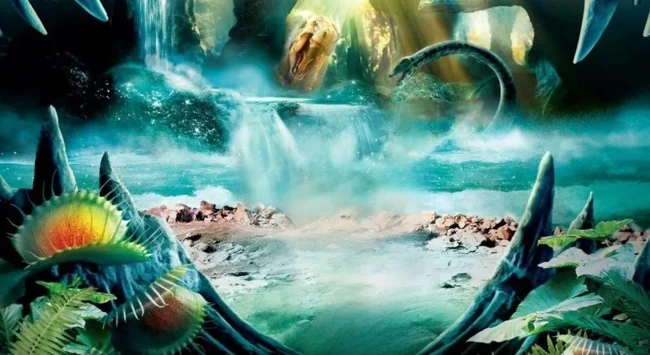
Run, Claire, Run!: Jurassic World (2015)
While in the second film, the clone girl unleashes dinosaurs—at least this can be attributed to her age and childish impulsiveness—the adult Claire from the first film has no such excuse. She spends the entire story in heels, as if she were attending an investor meeting rather than hunting prehistoric monsters. And yes, these are the shoes she wears when she runs away from the T-Rex. And she survives. They're not just shoes—they're a superpower. 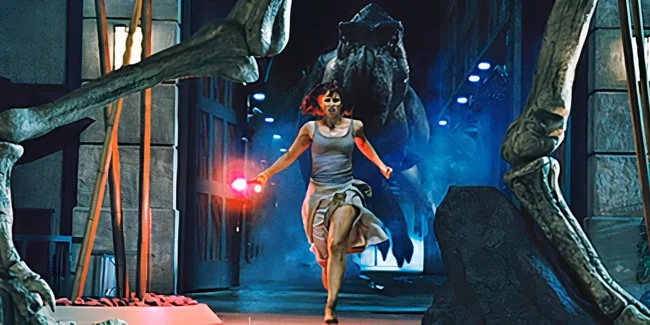
To her credit, she finally switches to knee-high boots in the sequel, but in the first film, it looks like the hyper-organized Claire simply didn't have a pair of ballet flats handy. Bryce Dallas Howard later explained that the heels are her character's "armor." It sounds nice, but on screen it still looks ridiculous and makes Claire look like a caricature rather than a symbol of strength.
It's Easier to Teach Drilling Than Flying: Armageddon (1998)
Looking for logic in Michael Bay's films is hopeless, but "Armageddon" stands out for its particular absurdity. According to the plot, an asteroid the size of Texas is heading toward Earth, with 18 days left until disaster. NASA decides not to search among the best astronauts, but hires a team of drillers to train them as astronauts in 12 days. The task is to drill a hole in the asteroid and blow it up from the inside. 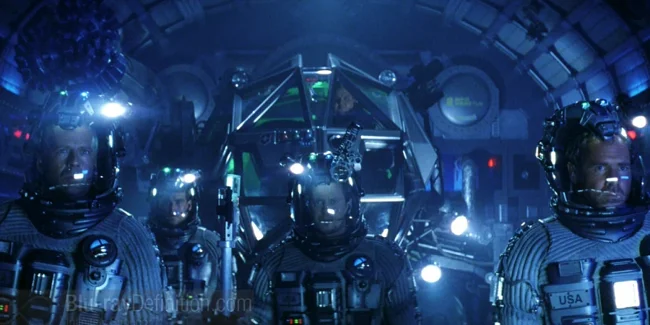
The problem is that this whole plan sounds like a joke. After all, training astronauts to drill would be a hundred times easier than training drillers to fly into space. People who spend their entire lives preparing for extreme flights already know how to handle equipment, cope with G-forces, and not panic in zero gravity. But the idea that a driller could become an astronaut in a couple of weeks is pure fantasy, even by Bay's standards.
By the way, Ben Affleck said he once asked Michael Bay the same question. The director's response was short and to the point: "Shut up."
Quarantine is for Wimps: Life (2017)
The first rule of science fiction: don't break quarantine. It seems like a simple truth, but in film after film, the characters continue to do the opposite, to the horror of anyone with even a hint of logic. In Ridley Scott's Alien, at least this is justified—Ripley tries to follow protocol, but everything is ruined by the android Ash, who has his own sinister intentions. 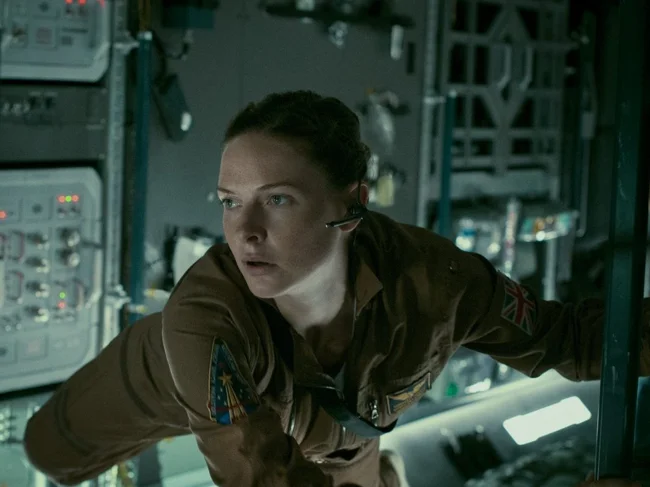
But the 2017 "Alive" has no excuses. When an alien creature named Kelvin attacks one of the crew members, engineer Rory decides to break quarantine to save him. And, as you might guess, he doesn't appreciate this kindness. As a result, Kelvin breaks free, grows, devours the crew, and in the end, safely returns to Earth.
One could say the heroes simply panicked, but the astronauts undergo strict screenings for precisely this kind of situation. Apparently, not on this station. No one listens to the quarantine officer—and ultimately, there's no one left to listen to.
Security? No, haven't heard of Face/Off (1997)
John Woo films, like Michael Bay's, aren't the place to look for flawless logic. Face/Off is too effective and energetic for the viewer to question its verisimilitude. But even the most devoted fan's patience is limited. 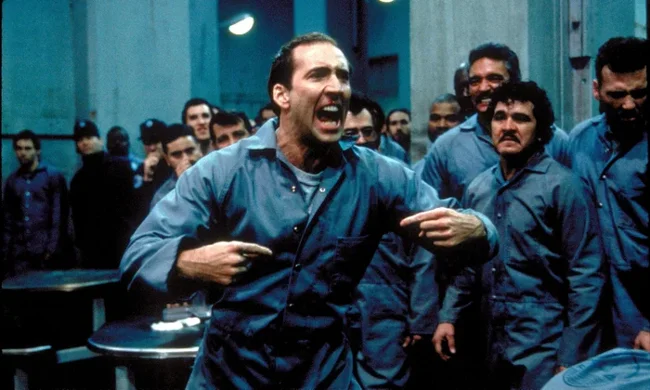
In the plot, FBI agent Sean Archer assumes the identity of terrorist Castor Troy—literally, through a face transplant. However, Troy himself is in a clinic without any security, like a regular patient recovering from an appendectomy. As a result, his men gain unhindered entry, force the surgeon to reverse the operation, and the story turns into a nightmare for Archer, who remains in the body of his own enemy.
Why the dangerous criminal was left alone with the doctors remains an unanswered question. Apparently, the security team simply went to lunch.
A Genius with a Last Century Access System: Ex Machina (2014)
Alex Garland's debut film was one of the smartest and most disturbing films of the decade. The story of programmer Caleb, invited to test the android Ava's consciousness, subtly explores the boundaries between intelligence and illusion. But even in this near-perfect scenario, there's a jarring detail. 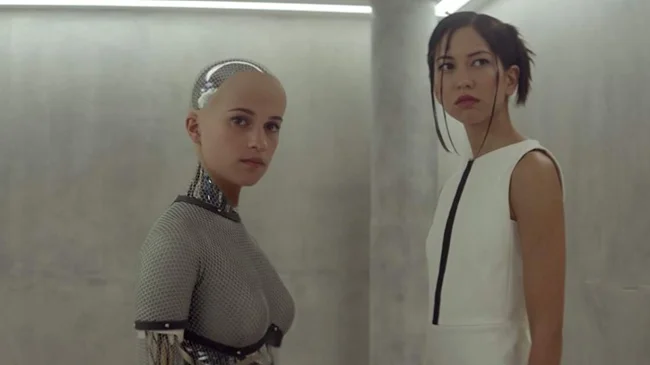
Nathan Bateman, a billionaire and creator of synthetic beings, lives in a high-tech bunker controlled by artificial intelligence, but for some reason uses a 1990s-era access system: standard keycards. No biometrics, no passwords. It's this archaic nature that leads to the final catastrophe—Ava locks Caleb away and calmly walks away.
One might assume that Nathan simply overestimated himself and didn't believe his creation was capable of rebellion. But the fact remains: for a man who created artificial life, he was remarkably lax about safety.
Kiss of Death: 28 Weeks Later (2007)
Unexpectedly for a sequel, "28 Weeks Later" turned out to be an excellent film—tense, brutal, and, in its own way, tragic. The story begins with a powerful scene where Don, fleeing from those infected with the Rage virus, abandons his wife Alice, choosing self-preservation over heroism. It is later revealed that she miraculously survived and is in quarantine. 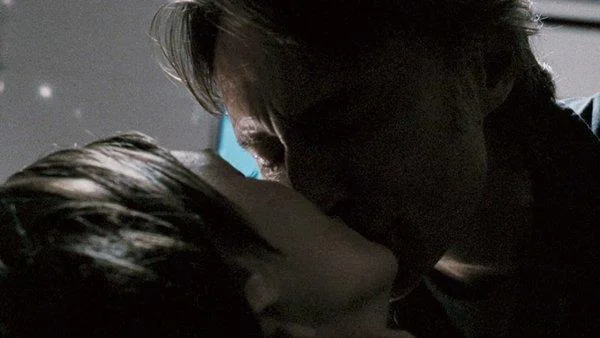
And so Don, tormented by guilt, makes his way to her to ask for forgiveness. Everything would be fine, but he decides to kiss his wife, whose condition he knows nothing about. Alice turns out to be an asymptomatic carrier of the virus, and this kiss triggers a new outbreak. Don transforms, kills her along with the hope of finding a cure for the virus, and dozens of others die in the process.
Ultimately, the entire catastrophe unfolds because of one gesture, which, from a dramatic perspective, is understandable, but from a rational perspective, a complete failure.
Survival Guide for Idiots: Prometheus (2012)
"Prometheus" is one of Ridley Scott's most beautiful and atmospheric films, but for all its profound ideas and hidden meanings, it's a veritable parade of ridiculous decisions. The crew lands on the moon LV-223, and within a couple of minutes they take off their helmets, as if they've landed not on an unexplored planet but on a mushroom hunt. Things only get worse. Biologist Millburn decides to play with a snake-like alien creature and, of course, dies. The other expedition members manage to get lost, and the ship, for some reason, has no weapons at all. 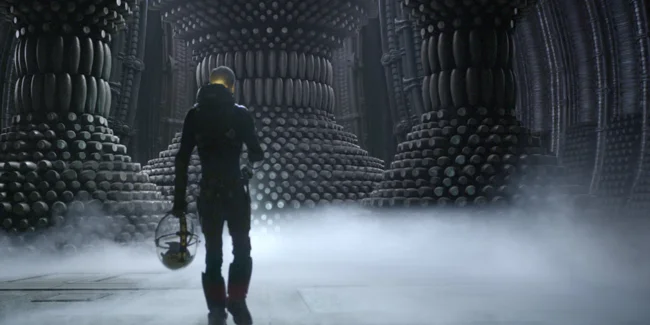
It seems like the crew was recruited based on the principle of "enthusiasm is everything." Against the backdrop of all this nonsense, even the famous scene where Vickers runs in a straight line from the falling ship seems more than logical. Sure, he could have veered off, but try to maintain a sense of direction and not panic when an alien colossus is barreling toward you.
Saving the Planet by Destroying Humanity: Godzilla: King of the Monsters (2019)
"Godzilla 2" tried to be more than just a movie about giant monsters. The writers clearly wanted to add some philosophy, some discussion about the balance of nature and the cost of human influence. But all of this is drowned out by one of the most absurd plot decisions in recent years. 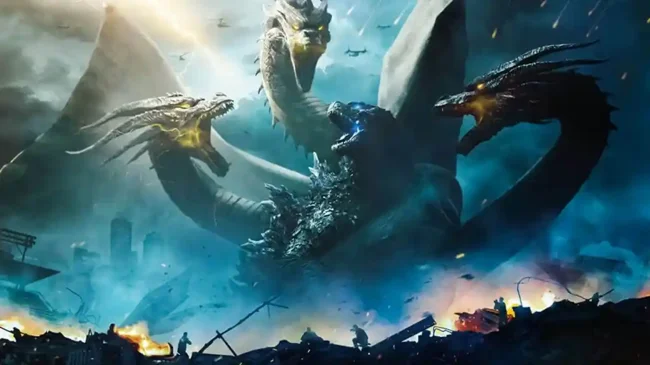
Dr. Emma Russell, one of the central characters, sides with the eco-terrorists, deciding to unleash all the Titans to "restore balance" on the planet. The outcome is predictable: cities are reduced to rubble, millions of people die, and only then does Emma suddenly realize that perhaps her plan wasn't so brilliant after all. In the finale, she sacrifices herself to save her daughter, and the film presents it as a moment of redemption, as if the viewer is supposed to forget that she actually caused the apocalypse and wiped out a significant portion of humanity.
Her motivation crumbles at every turn. Characters like Emma should be the driving force of the plot, but here she's simply a catalyst for chaos, first destroying people and then being surprised by the consequences.


